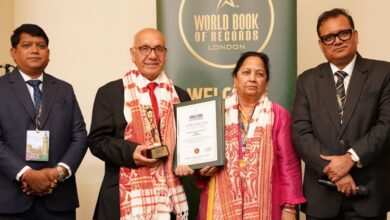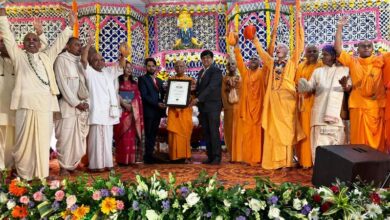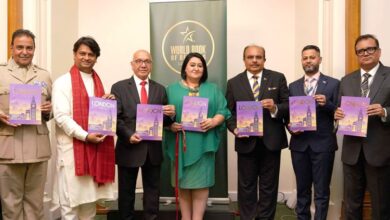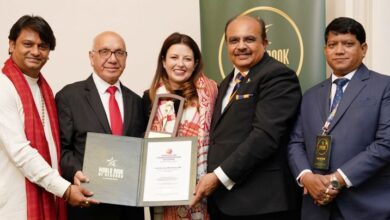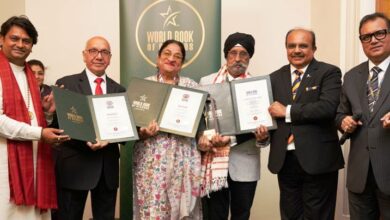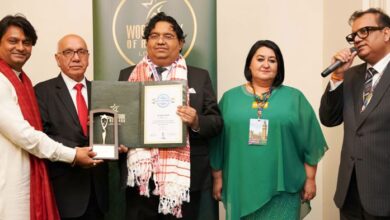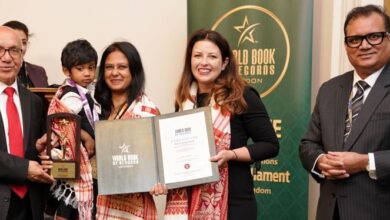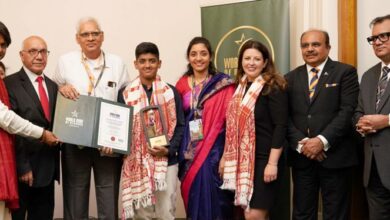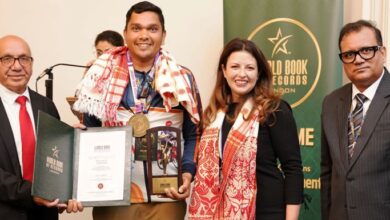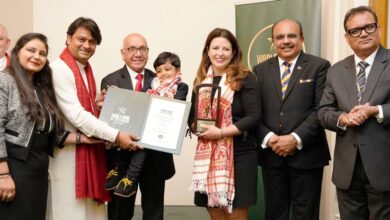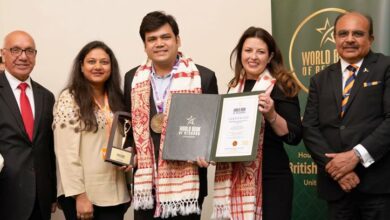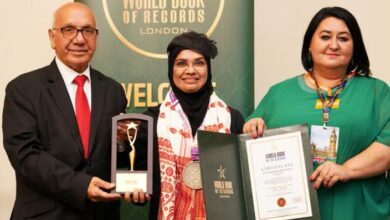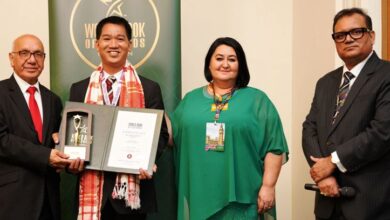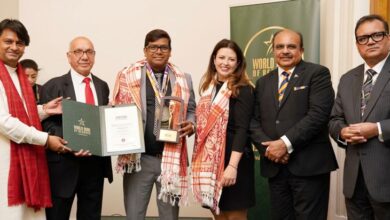Music Maestro of Bollywood Naushad Ali from Mumbai

Music Maestro of Bollywood Naushad Ali from Mumbai, Maharashtra, India gets posthumously included by World Book of Record
For being one of immortal Music directors of Indian Film Industry to bring Indian classical music into the film medium and promoting Hindustani music.
Mumbai : The World Book of Record has posthumously included Music Maestro of Bollywood Naushad Ali for being one of the immortal Music directors of Indian Film Industry to bring Indian classical music into the film medium and promoting Hindustani music. The certificate was bestowed to Mr. Raju Naushad Ali (son of Naushad Ali) by Mr. Santosh Shukla ,President & CEO, World Book of Records, UK, Dr. Suchita Shukla, Mr. Usman Khan and others.
Significantly, he was an Indian composer for Hindi films. He is widely considered to be one of the greatest and foremost music directors of the Hindi film industry. He is particularly known for popularizing the use of classical music in films. His first film as an independent music director was Prem Nagar in 1940. His first musically successful film was Rattan (1944), followed by 35 silver jubilee hits, 12 golden jubilee and 3 diamond jubilee mega successes. Naushad was conferred the Dadasaheb Phalke Award and the Padma Bhushan in 1981 and 1992 respectively for his contribution to the Hindi film industry. Naushad gave a new trend to popular film music by basing his tunes on classical music, ragas and folk music. Naushad was known for his skillful adaptation of the classical musical tradition for movie songs. For some movies like Baiju Bawra, he composed all scores in classical raga modes and arranged for the well-known vocalist Amir Khan to be a music consultant for this film. Naushad could easily work with Western instruments, including the clarinet, the mandolin and the accordion. He could incorporate Western musical idioms in his compositions and compose for Western-style orchestras. During the early 1940s, recordings were done in quiet parks and gardens after midnight because the studios did not have sound-proof recording rooms. In the gardens, there would be no echo and disturbances, unlike the studios where the sound reverberated because of the tin roofs. For films like ‘Uran Khatola’ and ‘Amar’, he recorded the voice of a particular artist on a scale of 90, then recorded it on 70, then on 50 and so on. After the complete recording, it was played for the scene and the impact it created was terrific. It can be said of Naushad that in the early days of popular cinema music in the thirties and forties he set the standards for classical and folk music that resonated with the idea of India. In short he brought out the beauty of Indian music in a short film song of a few minutes which was not an easy feat. The composers who followed him were inspired by this aspect of his compositions.
On being recognized by the World Book of Records, the family members of Naushad Ali were congratulated by members of the central working committee. #AlmaTimes #WBR

